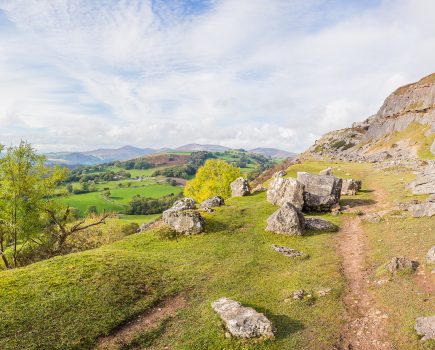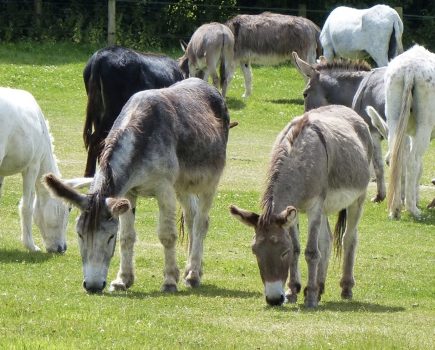Starting on your first smallholding can be daunting – the lengthy, and often expensive, search for the right property or the right piece of land, perhaps moving to a new area or making career or lifestyle changes are steps towards your smallholding, but once you’re ready to make a start and actually get some animals, or start planning activities, what is it that you need to think about first?
There are some simple things you can do to help get started in smallholding – anything from meeting some like-minded people or going on a course can be really beneficial. Then, of course, there’s the amount of form filling and bureaucracy which accompanies smallholding, to ensure that you’re fulfilling any legal requirements.
Have a plan! So, you’ve got some land, some enthusiasm, hopefully a bit of cash – you need a plan for what you want to do, when, what that might cost, what return there might be and so on. You don’t need a full scale business plan for keeping a few hens in the garden, but for activities which are going to require some investment in livestock, or machinery, some kind of basic plan is a good idea. For example, someone might be keen on keeping sheep, but have no experience, so in the first year of their smallholding, it might be a good idea for them to fatten some store lambs and just get used to sheep – moving them about, keeping an eye on them, feeding and husbandry tasks, and the all important first visit to an abattoir. Launching straight into a large breeding flock, with no experience of keeping sheep, could be a recipe for disaster. So start slowly, build up your experience, number of animals, types of animals and so on over a few years and plan in some flexibility for this, just in case you find you don’t actually like keeping sheep after all!
Find a friend, go on a course Before you get your smallholding, you might have already got some experience, done a sheep keeping for beginners course, or a poultry health course, for example. Doing this gives valuable experience, as well as the beginnings of a network of people to approach with questions. There are smallholders groups, rural interest groups and agricultural colleges all over the country which offer livestock skills training, advice on planning and grants, rural crafts and skills such as spinning or hedge laying. Once you’re settled in an area, join a local group. Support from other smallholders is the best you can have – they will have contacts, they can suggest a local vet, feed merchant, have a look at the fences with you and offer advice on livestock questions. Most smallholders are only too willing to help one another.
Investigate the area If you’re planning to move to a new area, it pays to take a good look around and investigate what other people are doing in that area. Rural events, many of which are listed in our show guide this month, are a good place to meet farmers, livestock breeders, bee keepers and crafts people. There may well be particular crops and types of livestock more common than others because they suit local conditions.







